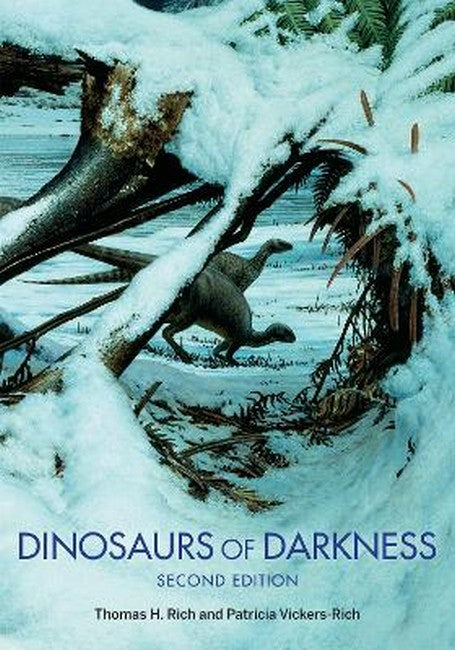Thomas H. Rich is Curator of Vertebrate Palaeontology at Museums Victoria, Melbourne, Australia. He is affiliated with Swinburne University of Technology and Monash University. Patricia Vickers-Rich is Professor of Palaeontology in the School of Chemistry and Biotechnology, Faculty of Science, Swinburne University of Technology, an Emeritus Professor of Palaeobiology in the School of Earth, Atmosphere and Environment at Monash University and a Research Associate at both Museums Victoria and Deakin University in the Melbourne and Geelong regions of Victoria, Australia. She is also a Research Associate of the Precambrian Laboratory at the Borissak Paleontologic Institute, Russian Academy of Sciences, Moscow. She is also Director of PrimeSCI! the Wantirna campus of the Swinburne University of Technology, also in Melbourne, Australia.
Request Academic Copy
Please copy the ISBN for submitting review copy form
Description
Foreword by Frank C. Whitmore, Jr. Preface Acknowledgements 1. Dinosaur Cove 2. The Crossing of the Rubicon 3. Back to Dinosaur Cove 4. Interlude 5. Underground at Dinosaur Cove 6. New Explorations 7. Restoring Life of the Past 8. New Explorations 9. Other Eggs, Other Baskets 10. An Unexpected Surprise 11. Getting through the Winter 12. Multiple Working Hypotheses 13. The Other Hemisphere 14. Where Are We Now; Where Are We Going? 15. Afterthoughts Notes Literature Cited Index
"A valuable volume detailing an underexplored region of the world of dinosaurs, Dinosaurs of Darkness is essential reading for any dino-devotee."-Danielle Ballantyne, ForeWord "This update from the award-winning first edition includes the latest discoveries and prevailing theories, as well as several color photographs of the scientists and their findings. A valuable volume detailing an underexplored region of the world of dinosaurs, Dinosaurs of Darkness is essential reading for any dino-devotee."-Foreword Reviews "This book mentions crucial topics-grants, permits, marketing-that are usually avoided by authors, because they are less exciting than talking about the dinosaurs themselves. They remind readers that without this context, there would be no dinosaurs to talk about! Paleontology is a field that constantly needs to "prove" itself to authorities, sponsors, institutions-and researchers have to become marketing experts, playing the political and mediatic game in order to gather funding and being able to keep digging. The authors explain how they made their way through this complicated system, and managed to get governmental permissions and funding, creating long-term relationships with sponsors, spreading around the news, and eventually showing the world their team's wonderful discoveries."-Blandine Hautier, Paleontological Society

